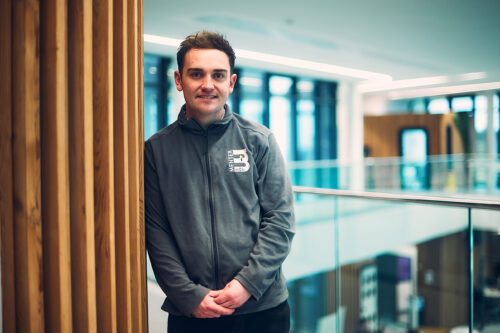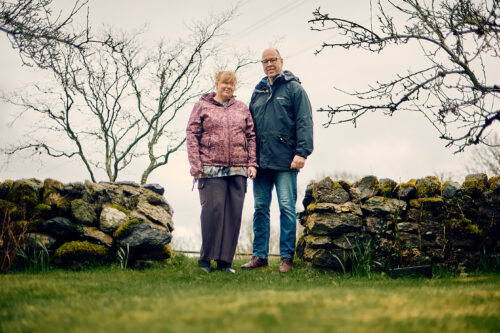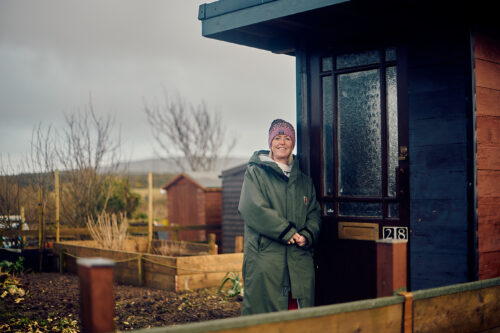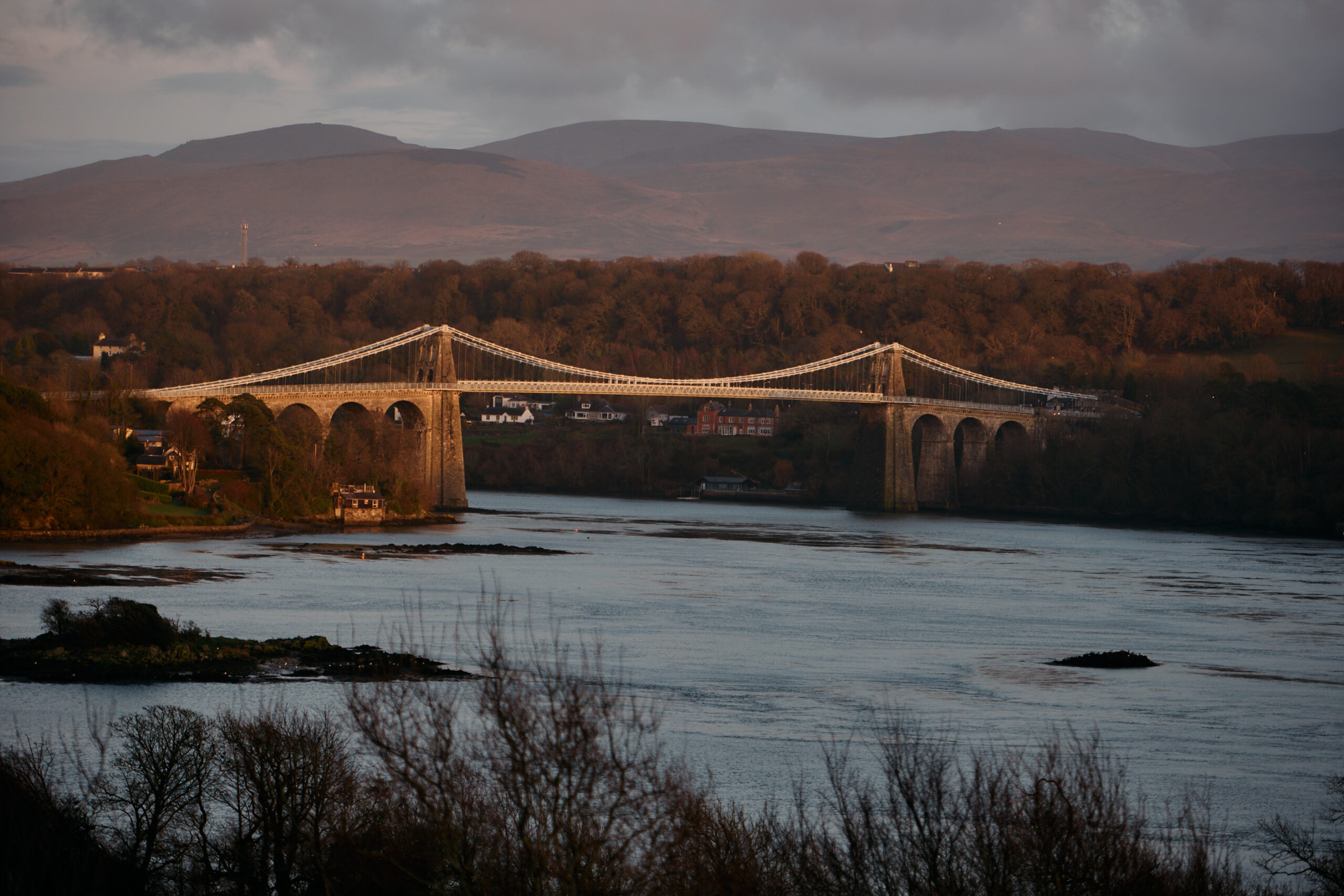Ynys Môn Food Partnership: Building a Sustainable Food Economy
A Sustainable Food Economy in Ynys Môn: building prosperous local food economies by supporting local food businesses to grow and develop.
The Ynys Môn Food Partnership was established in 2020 with the aim of providing a strategic focus for food-related activities on Anglesey. Hosted by Menter Môn, the partnership is led by a project manager and focuses on supporting sustainable food practices that benefit both local businesses and the community.
Ynys Môn Food Partnership works towards the goals outlined in the Ynys Môn food charter; promoting sustainable food for local people, strengthening community ties, and developing a sustainable food economy.
To further strengthen and support the local economy, the food partnership launched the Ynys Môn Food Partnership Fund in 2023 to provide financial backing to local and sustainable food projects. Since its inception, the fund has supported a wide range of initiatives, providing opportunities and vital funding to develop Anglsey’s sustainable food landscape.
Supporting local food businesses
 Talking of the progress made so far, David Wylie, Project manager for Ynys Môn Food Partnership explains: “We’ve supported 11 projects so far including schools, community groups, Bwyd Da Môn, educational businesses, along with the Ynys Môn farming community. All of which are working towards the goals of the Ynys Môn Food Charter. In total we have received 46 applications for the latest round of funding, showing the demand for support from the Partnership.”
Talking of the progress made so far, David Wylie, Project manager for Ynys Môn Food Partnership explains: “We’ve supported 11 projects so far including schools, community groups, Bwyd Da Môn, educational businesses, along with the Ynys Môn farming community. All of which are working towards the goals of the Ynys Môn Food Charter. In total we have received 46 applications for the latest round of funding, showing the demand for support from the Partnership.”
One of the first beneficiaries of the funding was Anglesey Bees, a local business that specialises in honey production and beekeeping courses. With the help of the grant, Dafydd and Dawn Jones, the owners of Anglesey Bees, were able to purchase essential equipment that significantly improved the efficiency of their operations.
“With the money we purchased all the stainless steel work surfaces, the sink, the sub-clean flooring and the honey press, which is really important when you have to crush the honey out of the comb,” explains Dawn. “It’s made life much easier for us.”
 Dafydd Jones added how the partnership’s networking opportunities have benefited their business: “We’ve had a lot of help with networking with other food producers. We’ve had a lot of help and advice through that, and now we can offer advice too. It’s good to be able to work together and make produce together too with other local food producers.”
Dafydd Jones added how the partnership’s networking opportunities have benefited their business: “We’ve had a lot of help with networking with other food producers. We’ve had a lot of help and advice through that, and now we can offer advice too. It’s good to be able to work together and make produce together too with other local food producers.”
Anglesey Bees is committed to keeping its business local, focusing on reducing food miles by selling exclusively on the island. Dafydd explains: “We’ve made the decision to keep the business local to keep the food miles down, and the honey we produce is all created on Anglesey and is all sold here too. We received a Great Taste Award recently and that’s helped with our sales, and we have lots of people coming here to buy honey and people who come on courses and so on.
“We live in a Geo Park Unesco site, and that creates honey that’s unique to use because of the influence of the rocks on the soil, the soil on the plants and the plants on the honest, so the environment is really important for us to be able to create our artisan product.”
Empowering Communities
Another project that’s received funding from the Ynys Mon Food Partnership is Caru Amlwch, a not for profit organisation based in the Amlwch area of Anglesey, established to provide new and exciting opportunities to residents. One of their initiatives is an allotment space in Amlwch, established in 2019. However, they faced challenges with access to water on-site, and the grant from the Food Partnership enabled them to overcome this obstacle.
 Julie Hughes, one of the Directors of Caru Amlwch explained how the funding made a difference. “We have water here now because of the grant funding we received from the Food Partnership, which means people can grow more here as they don’t have to carry water over. We’ve also started an ‘honesty cart’ so if we grow too much we can place that food on the honesty cart and the money goes back to the allotments so it completes the circle and it works really well.”
Julie Hughes, one of the Directors of Caru Amlwch explained how the funding made a difference. “We have water here now because of the grant funding we received from the Food Partnership, which means people can grow more here as they don’t have to carry water over. We’ve also started an ‘honesty cart’ so if we grow too much we can place that food on the honesty cart and the money goes back to the allotments so it completes the circle and it works really well.”
Research in Agriculture
In addition to supporting local food businesses, the partnership has also funded research initiatives. One such example is the ADAS project, which received £3,000 to study greenhouse gas emissions within the island’s agricultural sector.
“ADAS supported the group of farmers to collect and analyse appropriate data from their farm enterprises, to help them understand what their baseline greenhouse gas emissions were and how these could be reduced,” says David Wylie as he explains the significance of this project. “The audits were then compared against other members of the group and against suitable industry benchmarks within Agrecalc. Recommendations and action plans were provided to the farmers in individual reports with guidance on how they could consider reducing their emissions.”
The project focused on grassland farms, which have a significant role in the local food supply chain. By providing farmers with tailored action plans and guidance on reducing emissions, the project aims to create a more sustainable future for food production on Anglesey.
Collaboration
Talking of the impact of the food partnership, David Wylie can see a unified effort on Anglesey with individuals, communities, public bodies and businesses coming together to improve the island’s food environment. David concludes: “To me, the food partnership is important because it brings together so many people, everyone’s impacted by food in life so it’s not just food businesses but it brings in the public sector as well.”
Watch the video that accompanies this case study below.

